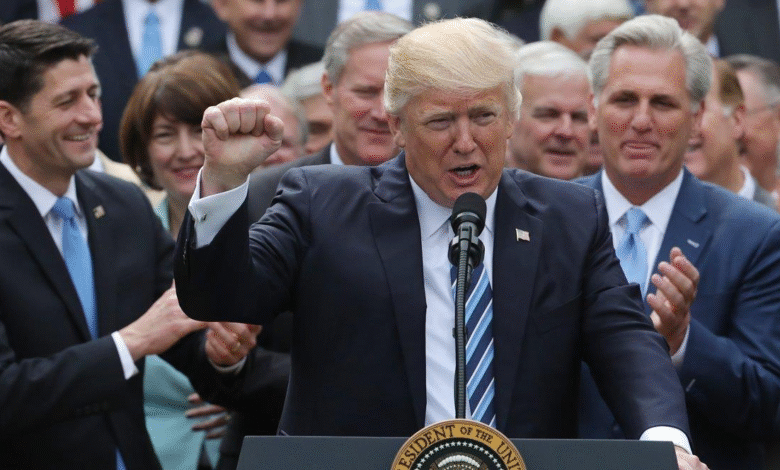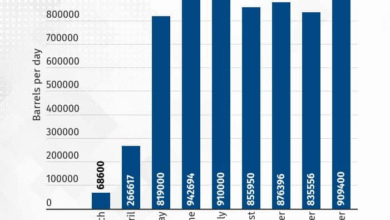Trump Healthcare Bill: Potential Impact on Millions at Risk

The Trump healthcare bill promises sweeping changes to the landscape of American healthcare, presenting significant implications for millions across the nation. Amidst heated debates, the legislation aims to reduce healthcare spending through substantial cuts, potentially impacting critical programs like Medicaid and leaving many vulnerable Americans without health insurance. With an estimated reduction of $1.1 trillion over the next decade, the bill’s provisions could result in over 11 million individuals losing coverage, a staggering figure highlighted by the Congressional Budget Office. Notably, these health insurance cuts threaten rural hospitals that heavily depend on federal funding for operation and patient care. As the bill progresses through Congress, it raises urgent questions about healthcare access in America and the viability of safety nets for those most in need.
In exploring the contentious Trump healthcare proposal, it is essential to understand the broader implications of this healthcare spending bill. Dubbed by proponents as a necessary reform to eliminate wasteful spending, the proposed legislation includes significant Medicaid changes that could curtail access to essential medical services for countless citizens. The intended reduction in healthcare funding reflects a shift in policy that could disproportionately impact rural hospitals reliant on government support. As the bill faces scrutiny from both sides of the political spectrum, the ongoing debate underscores the varying perspectives on health insurance reform and its effects on American families.
Impact of Trump’s Healthcare Bill on Health Insurance Cuts
The Trump healthcare bill is poised to implement drastic health insurance cuts that could leave millions without coverage. According to the Congressional Budget Office, this bill is estimated to cut about $1.1 trillion from healthcare spending, primarily affecting Medicaid. This extensive reduction raises serious concerns, as approximately 11.8 million individuals could lose their health insurance by 2034, a statistic that highlights the bill’s potentially destructive impact on the American healthcare landscape.
Health insurance cuts stemming from this legislation are likely to disproportionately affect the most vulnerable populations, including low-income families and individuals with disabilities. Medicaid, which serves around 72 million Americans, will see the majority of its funding slashed, creating a ripple effect that may result in fewer people accessing necessary medical services. Critics argue that these cuts violate the promise made by President Trump not to touch the Medicaid program, indicating a possible betrayal of trust with his voter base.
Medicaid Changes and Their Consequences
Central to the Trump healthcare bill are significant changes to the Medicaid program, which provides essential coverage for disabled and low-income Americans. The proposed modifications include the introduction of stringent work requirements that may disqualify many beneficiaries, especially vulnerable individuals. Opponents of the bill express concern that these changes could lead to a dramatic reduction in Medicaid enrollment and ultimately leave millions without access to vital health services.
The implications of these Medicaid changes extend beyond individual coverage; they threaten the sustainability of rural hospitals that heavily rely on Medicaid funding. With estimates showing that a substantial number of rural healthcare facilities may close due to these funding drops, communities already facing challenges in accessing healthcare could see their options dwindle further. The cascading effects of these policy changes may lead to job losses and reduced healthcare access in regions that are most in need of support.
Examining the Healthcare Spending Bill’s Broader Impact
The Trump healthcare spending bill has sparked intense debate regarding its broader implications for healthcare access across America. Many healthcare experts and advocates argue that the proposed cuts will not only decrease the quality of care but also limit the financial resources available for critical health services, particularly in underserved areas. As hospitals face potential closures and funding decreases, the risk to public health significantly escalates.
The bill’s detractors emphasize that these cuts could result in ineffective health insurance solutions, affecting communities’ ability to receive timely care. This situation might hinder public health initiatives and place a heavier financial burden on emergency services, which could lead to worsened health outcomes for millions. The implications of these financial changes underscore the necessity for a balanced approach to healthcare that prioritizes accessibility and equity for all citizens.
Rural Hospitals and The Funding Crisis
Rural hospitals play an essential role in providing healthcare access to communities often marginalized in the larger healthcare discussions. With the impending cuts proposed in the Trump healthcare bill, these institutions face an existential threat that could result in layoffs and closure if adequate funding is not preserved. Recent reports indicate that while a $25 billion fund has been established in the bill to support rural hospitals, many argue that it is still insufficient to counterbalance the extensive cuts anticipated.
Supporters of rural healthcare emphasize the need for sustained investment and thoughtful policies that enhance healthcare delivery rather than dismantle it. As rural hospitals already fight to maintain operations under financial strain, the further cuts could exacerbate the ongoing crisis in rural health access, heightening disparities in care and limiting options for local residents who depend on these essential services.
Long-Term Effects of Healthcare Policy Changes
The long-term effects of the Trump healthcare bill and its proposed changes may redefine the American healthcare landscape. With millions potentially losing health insurance and vital healthcare services becoming more tenuous, the ramifications are likely to extend far beyond immediate fiscal concerns. Analysts predict a gradual degradation of health outcomes, given that access to preventive services often decreases when individuals lose insurance coverage.
Moreover, as the healthcare landscape evolves in response to this legislation, the societal costs become increasingly difficult to quantify. Families may face increased financial burdens due to out-of-pocket costs, leading to delayed medical care or avoiding necessary treatments altogether. An overarching prediction is that without comprehensive and supportive healthcare reforms, more individuals will experience health crises that could have otherwise been managed through preventive care.
The Role of Medicaid in American Healthcare
Medicaid’s role in American healthcare cannot be understated, as it serves as a lifeline for millions of low-income individuals and families. With about 72 million Americans enrolled, Medicaid is a primary source of coverage for some of the most vulnerable population segments, including children, the elderly, and those with disabilities. The Trump healthcare bill’s cuts threaten this vital safety net, posing significant risks to health security and well-being.
The impending changes to Medicaid could have implications that extend well beyond mere insurance coverage. With essential services at stake, health advocates express concern that access to comprehensive care will be compromised. The challenge lies in ensuring that all Americans have equitable access to health resources, as Medicaid funding reductions could overwhelm state budgets and push communities into more fragile health circumstances.
Concerns Over Access to Healthcare Services
Access to healthcare services remains one of the most pressing issues facing American families, especially amid the proposed cuts in the Trump healthcare bill. Many fear that eliminating or restricting Medicaid will disproportionately affect marginalized populations, leading to increased health disparities across different demographic groups. Access to preventive care services, crucial for the management of chronic diseases, could diminish significantly as coverage becomes limited.
Healthcare access is not merely a matter of insurance; it ties into the broader social fabric that supports overall population health. Barriers created by the proposed cuts could exacerbate already existing inequities. Healthcare professionals warn that the combination of reduced access and increased costs could lead to an under-resourced healthcare environment where individuals wait longer for care and experience higher rates of preventable conditions.
Republican Perspectives on Healthcare Cuts
From a Republican perspective, supporters of the Trump healthcare bill argue that the cuts are essential for eliminating waste, fraud, and abuse within the Medicaid system. They believe these adjustments will promote efficiency and ensure that the program is sustainable for future generations. The dialogue surrounding waste in Medicaid has been a recurring theme, with proponents insisting that these changes are necessary to correct longstanding issues.
However, the response from critics, including healthcare professionals and advocacy groups, underscores a significant divide regarding the interpretation of these savings. Many healthcare workers claim that these cuts risk leaving the most vulnerable without necessary medical care, threatening the stability of community health programs. This discourse highlights the tension between ideological beliefs about the role of government in healthcare and the practical implications for millions of Americans.
The Future of American Healthcare: A Divisive Issue
The future of American healthcare has become a deeply divisive issue, particularly in light of the Trump administration’s proposed changes. The healthcare spending bill encapsulates the clash of visions for how healthcare should be structured in the United States, reflecting a core debate over government involvement in health insurance. Proponents of the bill assert that these changes will foster a more efficient and self-sustaining system, while opponents highlight the potential human cost of such policies.
As discussions continue about the future of Medicaid and health access in America, the influence of the Trump healthcare bill underscores the urgency for collaborative solutions that address the real needs of citizens. The ongoing discourse must consider the voices of healthcare providers, patients, and policymakers alike, with an emphasis on building a system that prioritizes health equity and access for all.
Frequently Asked Questions
What are the main changes introduced by the Trump healthcare bill regarding health insurance cuts?
The Trump healthcare bill proposes significant health insurance cuts, primarily targeting Medicaid, which would face approximately $1 trillion in funding reductions. These cuts could lead to an estimated 11.8 million Americans losing health insurance over the next decade, highlighting the controversial nature of the bill.
How will the Trump healthcare bill impact Medicaid changes for low-income Americans?
Under the Trump healthcare bill, Medicaid changes would impose strict work requirements for certain beneficiaries, potentially disqualifying many low-income individuals from coverage. The bill could fundamentally alter the program’s accessibility, affecting millions who depend on Medicaid for their health insurance.
What implications does the Trump healthcare bill have for rural hospitals funding?
The Trump healthcare bill threatens rural hospitals by cutting Medicaid funding significantly, which these hospitals rely on for operational support. Although there are provisions for a $25 billion fund to aid rural hospitals, many experts argue that this is insufficient to counteract the extensive cuts, risking closures and job losses.
How does the Trump healthcare bill affect healthcare access in America?
The Trump healthcare bill poses a risk to healthcare access in America by drastically reducing Medicaid funding and imposing work requirements that could disenfranchise vulnerable populations. This restructure could lead to millions losing their health insurance, particularly affecting low-income individuals and those living in rural communities.
What are the estimated long-term effects of the Trump healthcare bill on healthcare spending?
The Trump healthcare bill is projected to cut about $1.1 trillion in healthcare spending over the next decade, significantly impacting Medicaid and potentially leading to 11.8 million individuals losing health insurance. This monumental cut could reshape the landscape of healthcare spending in America.
What are the arguments for and against the Trump healthcare bill concerning Medicare savings?
Proponents of the Trump healthcare bill argue that the proposed Medicare savings are necessary to eliminate waste and improve efficiency within the system. Critics, however, claim these cuts undermine the healthcare needs of the most vulnerable populations, particularly those reliant on Medicaid, pointing out that it contradicts assurances against altering the program.
How does the Trump healthcare bill intersect with the Affordable Care Act (ACA)?
The Trump healthcare bill poses significant challenges to the Affordable Care Act by introducing regulations that could limit access to ACA Marketplace coverage and affecting enhanced tax credits. These changes could result in increased health insurance costs and fewer coverage options for individuals.
What estimates has the Congressional Budget Office (CBO) provided regarding the Trump healthcare bill’s impact?
The Congressional Budget Office estimates that the Trump healthcare bill could lead to approximately 11.8 million individuals losing health insurance by 2034, primarily due to cuts targeting Medicaid. This figure underscores the potential severity of the health insurance landscape under the proposed legislation.
What are the concerns raised by healthcare professionals regarding the Trump healthcare bill?
Healthcare professionals have expressed concerns that the Trump healthcare bill’s cuts will result in closures of hospitals, especially in rural areas where facilities heavily depend on Medicaid funding. They also warn about job losses for healthcare staff, emphasizing the detrimental impacts on patient care and community health.
How might the Trump healthcare bill affect older adults regarding Medicaid coverage?
The Trump healthcare bill could disproportionately affect older adults due to new work requirements for Medicaid eligibility. As many older individuals may struggle to meet these requirements due to health issues and age discrimination, this could result in a significant loss of Medicaid coverage for this vulnerable population.
| Key Points | Details |
|---|---|
| Changes to Healthcare | Trump’s healthcare bill proposes significant reductions in funding, potentially endangering millions’ access to insurance. |
| Impact on Medicaid | The bill could cut $1.1 trillion from healthcare spending, leading to 11.8 million individuals losing Medicaid by 2034. |
| Effects on Rural Hospitals | Funding cuts may threaten the operational viability of rural hospitals, which heavily depend on federal funding. |
| Work Requirements for Medicaid | New requirements for certain Medicaid beneficiaries to work or volunteer may result in significant insurance loss. |
| Opposition to the Cuts | Critics argue that the bill violates the promise to protect Medicaid and risks healthcare access for vulnerable populations. |
Summary
The Trump healthcare bill is poised to radically alter the landscape of U.S. healthcare by instituting massive cuts, particularly to Medicaid, thereby potentially leaving millions of Americans without health insurance. The implications of these changes extend beyond individual coverage; rural communities and hospitals may face existential threats due to decreased federal support. The introduction of stringent work requirements further complicates access for many, especially older adults and individuals in vulnerable employment situations. The ongoing debate surrounding this legislation underscores the contentious nature of healthcare policy in America and its profound impact on public health and safety.




